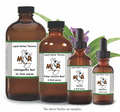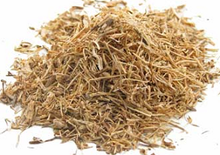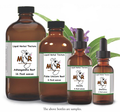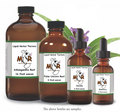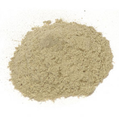 Loading... Please wait...
Loading... Please wait...- Home
- Bulk Herbs
- Herbs (M-N)
- Nettle Root
Product Description
Nettle Root
Wild Crafted - USA, Washington State
Also Known As – Urtica dioica
Overview - Stinging nettle is most famous for the stinging hairs that will raise welts on the skin of those unlucky enough to touch them while walking through the woods or fields. The stinging hairs penetrate the skin with histamine and formic acid, which irritates the skin.
Medicinal Uses - Internally, Nettle herbal tea is nutritious and full of iron. It is helpful during pregnancy in maintaining iron at a healthy level. It is also a galactogogue (a substance that increases milk production), and is therefore useful where this is a problem, either in animals or humans. The juice can be taken as a diuretic for congestive heart failure patients. Extracts can be used for arthritis, hay fever, anemia, kidney problems and pain. Externally, Urtication (flogging with nettles) is a process of deliberately stinging the skin with to create redness. This is done to provide pain relief from rheumatism. Fresh nettle can stop bleeding when it is applied to a fresh wound. The herb contains a lot of vitamin K, which aids clotting.
Stinging nettle root is used for urination problems related to an enlarged prostate(benign prostatic hyperplasia [BPH]). These problems include nighttime urination, too frequent urination, painful urination, inability to urinate, and irritable bladder.
Stinging nettle root is also used for joint ailments, as a diuretic, and as an astringent.
Other Uses – Tops are nutritious and can be cooked like spinach or put in soups. New growth can be safely picked and eaten fresh in salads. Stems can be used to make specialty paper. It can also be raised for fiber or dye.
Herbs to Combine/Supplement - Dried nettle can be combined with red raspberry leaf, oatstraw and alfalfa to make a nutritious herbal tea during pregnancy.
Parts Used -The root portion of the plant.
Precautions - Stinging nettle is considered safe for most people, although you should be careful to use it only as directed. Some people may experience some mild stomach upset, fluid retention or hives if they take too much.
Suggested - For topical creams, use as directed on the label.
- For tincture, 5 to 7.5 ml 3 to 4 times per day is sufficient.
- For leaf extract, 2 to 5 ml 3 times per day is usually enough.
- For root extract, take 1.5 ml 3 to 4 times per day.
- For dried nettle leaf, 2 to 4 grams three times a day is the usual dose.
- For herbal tea, use 3 to 4 teaspoons of dried leaf in 2/3 cup of boiling water and steep for 3 to 5 minutes. Drink 3 or 4 cups per day. Make sure you drink extra water along with the herbal tea.
Disclaimer - The information presented herein by Mountain Maus’ Remedies is intended for educational purposes only. These statements have not been evaluated by the FDA and are not intended to diagnose, cure, treat or prevent disease. Individual results may vary, and before using any supplements, it is always advisable to consult with your own health care provider.








